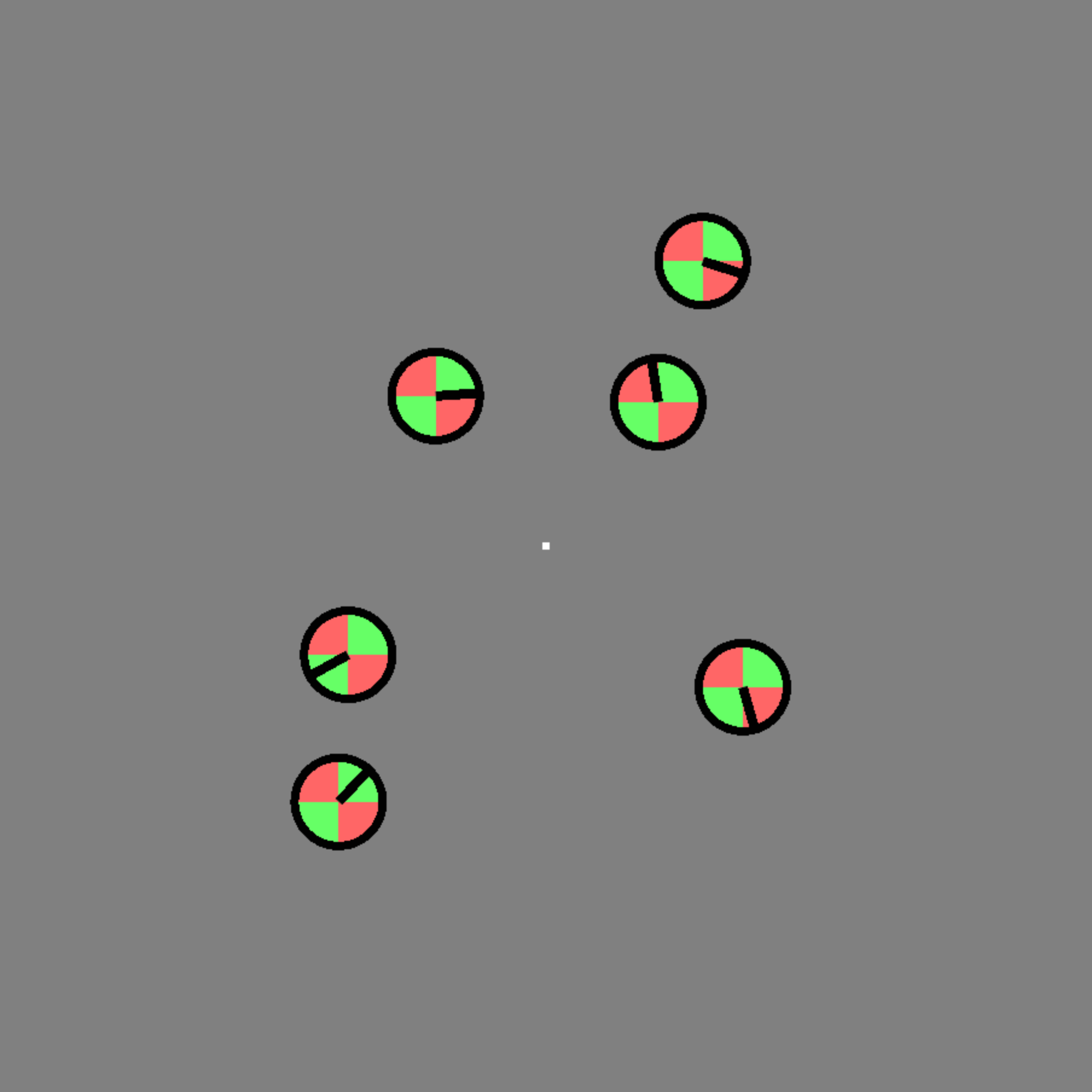Science needs to be better, not simply ‘return to normal’
Published:
It’s late into a Chicago winter – the snow is finally melting, the cold is finally lifting, the daylight is finally lasting longer. Many are looking forward to the summer where the city will revive, social possibilities will emerge and the weight of the past half-year will be lifted. It seems to me that in many ways, science is looking forward to a similar return to normalcy. A return to less restrictions on data collection, inspiring in-person conferences, business as usual.
But many have faced unprecedented challenges in the times of a global pandemic, in particular early-career researchers, and a ‘return to normal’ simply ignores their collective trauma. Science should not return to what it was. What science has been is not good enough, and science desperately needs reform now. I desperately need it. Trainees desperately need it.
For context, it makes sense to share how I’ve been experiencing science and academia. I’ve been a postdoctoral researcher for almost 3 years now, most of it during a pandemic. Like many, I experienced significant disruption to my workflow – a long pause to in-person data collection, adjustment to working from home, rebooting of lab operations. In one of my projects, data collection for an experiment took less than two months to complete (from January to March 2020); the most recent experiment in this project took seven months to reach the same sample size (from July 2021 to February 2022).
Yet while we all experienced these challenges and this delay, it feels like it is rarely acknowledged or accounted for. All the work to restart the lab, checking all the equipment still functioned and mentoring younger graduate students who had not yet set foot in the lab won’t be recognized in any of my publications. And I’m somehow hopeful (skeptical, but hopeful) that my publications despite their delay will have enough impact on furthering my career. A postdoc is meant to be a trainee position to transition into a research faculty role, right?
I’ve listened to my peers’ struggles to navigate a disrupted job market and shared in their helplessness – it is not a lack of desire or determination, or a record of capability and brilliance that is stopping them but a total structural failure to provide ample and adequate research opportunities in academia. Many in my close network that I’ve seen at work, admired their dedication and learned from their brilliance have been turned away. The years spent with perpetual life uncertainty, getting by on pretty paltry salaries, is left unrewarded – and it’s truly to the detriment of science and human progress. I’m not hopeful even further when remarkable scholarship and mentorship is not awarded with tenure. See the collective response of the community to the decision, which was made by a few that clearly do not represent the many.
I’m also an international scholar. In many ways, it has been rewarding but it was not without significant challenges. Living abroad is exciting and I don’t want to take the opportunity for granted – but we do experience destabilization and have to build a new way of living in the hopes of furthering our careers.
Far away from friends or family, navigating a new culture, perhaps a new language, finding a new way of living. The ultimate builders. Building something from scratch. Building new relationships one by one, building expertise, building a life, navigating daily around roadblocks
— Roshni Rao (@drroshnirao) January 21, 2022
I haven’t been able to fly home to Australia for two years, unwilling to tank the substantial flight costs or risk further research interruption if the visa processing were not to be timely (the wait for an embassy interview is currently at six months) or a surge in cases occurs from an unexpected variant. When Thanksgiving week came around last year and many got to return home and spend time with their family, it was particularly isolating to be reminded that I could not do the same. It was the first time I had really felt homesick – I had not let being away from home affect me earlier as I was resolved to pursue my scientific research goals. But with the sudden loneliness of that week, it hit me that I had been away from my ageing parents for so long. Oh, what it would mean to be able to give my Mum a hug and eat something Dad had prepared just for me.
Add the constant worry about whether I am doing the right things and enough of those right things. My manifestation of impostor syndrome interacts with the racist stereotypes that I’ve internalised with being an Asian early-career researcher.
It’s tough to fight the feelings of being unseen and incompetent, and the need to do more to be recognized and make it. I think it’d be offset somewhat by external validation but that seldom happens in science, at least enough to be relied upon. Instead, there’s ongoing reminders that reinforce the sense that I’m falling through the cracks – most recently, I discovered I do not appear on my department’s website, and presumably have not for the entire duration of my time here. The cause isn’t malicious – it’s likely because of some quirk in the structure of the department here. And it seems rather negligible in the grand scheme of things but it’s just another example of the constant blindspots that I seem to find myself in.
And I’m somewhat steeped in scientific reform myself, particularly advocating for early-career researchers. Some of the work that I’m most proud of is my advocacy for Open Science and reproducible research practice broadly – I founded and organised the ReproducibiliTea journal club at the University of Chicago for the past two years. It blossomed into a supportive and empowering community of the trainees in the department to engage with the issues around the Reproducibility Crisis and to do better science. I’ve given talks on potential ways to improve equity in vision science, written about how shifting to contributorship will benefit early-career researchers, and created and contributed to resources for one to get started with the Open Science movement.
Where does one get started on the reproducibility crisis and Open Science? I created this intro reading list as part of efforts to improve starter resources for @ReproducibiliT but it is for anyone! Included are short summaries and links to relevant online videos #OpenScience pic.twitter.com/g130q5OocQ
— William Ngiam | 严祥全 (@will_ngiam) August 30, 2021
But on my less-than-better days, I can’t depend on any intrinsic belief that what I do is worthwhile and needed. It becomes tougher to see the impact of my work when I can’t keep the dark clouds in my mind at bay. A common practice that scientists (including myself) preach is to celebrate every small win – got the code to work! Data collection is complete! Submitted a manuscript! Got reviews back! But isn’t it so pathetic that there’s so little reinforcement and validation in our structures that we have to do that to keep going?
I’ll readily admit that I’m probably needier than most but there’s something ironic about those pushing for much-needed reform to structures in academia and science not feeling like they’re supported.
I spent my time in grad school and post doc (2013-2021) heavily involved in the open science/methods reform space. I got to do cool stuff and meet cool people. They were also, without a doubt, the worst years of my life for my mental health. A thread on that (1/n)
— Charlie Ebersole (@CharlieEbersole) November 15, 2021
It’s almost like there’s a blatant collective amnesia that the job market is fucked, and the mental wellbeing of graduate students and postdocs is being fucked by existing academic structures, exacerbated by a global pandemic. And it feels like nothing is fucking being done about it.
So look, I am concerned that most departments are not doing enough for their trainees, ignoring the struggles to maintain their mental wellbeing in these times – instead the focus is to get ‘back to normal’ and produce the same research output as previously. I’d like to highlight the UCU, the union for academics, lecturers and researchers in the United Kingdom are striking at the moment for fair pay. Awesome, they deserve to be compensated appropriately for the tireless work they do. This kind of collective action is not readily available to graduate students or postdocs (with most graduate student unions not officially recognized by most major institutions in the United States). This leads me to believe there needs to be more ‘trickle-down’ help – those with the resources and power need to lend a hand and lift others up. Let’s remind ourselves that we all need to take care of each other, and true success in science is not a solo pursuit but a collaboration where we all succeed.
There are two initiatives that I have personal experience with that I think help or have helped. The first is the Working Memory Symposium, a virtual conference started by Jarrod Lewis-Peacock and Eddie Ester (associate professor and assistant professor at their respective institutions) in response to conferences being cancelled due to the pandemic. They recognized that there would be no opportunity for junior scientists to present their research and receive much-needed visibility and interfacing with the wider research community. As such, this virtual conference is trainee forward – it has just one stream, putting a single focus on talks by undergraduates, graduate students and postdocs. Faculty are encouraged to ask questions and provide feedback, which I think the presenters receive as validating and empowering.
The second is the creation of communities centered around early-career researchers. I think this is critical to better outcomes in multiple ways – the sharing of experiences and challenges can lead to formative discussions and intiatives to address issues faced by the community. It’s one reason why I’m a staunch advocate for ReproducibiliTea journal clubs – although the initial focus may be about open and reproducible research practices, the discussions naturally progresses to the lived experience of the trainees. This can highlight local departmental issues which could lead to actionable changes, or at least the validation that comes with a shared lament of how current academic structures (sometimes termed ‘the Incentives’, at least in my mind) leads to a poorer outcome. At least I experienced some validation when I aired my grievances to a newly formed postdoc group here created by Akram Bakkour (assistant professor in my department), who when he had been a postdoc, been part of a similar group initiated by Yael Niv (professor) and Mariam Aly (assistant professor).
An issue I see across these two examples is that it requires the action of enterprising individuals, volunteering their own time and effort. I think these initiatives aren’t really recognized or rewarded beyond the appreciation of the community members, and these efforts would only be sustained as long as those enterprising individuals see the worth of their service (or remain in academia). I’ve seen little discussion of broad structural changes to academia to provide relief for those impacted by the diminished job market and to counteract the ‘brain drain’ to industry. I haven’t heard of enough intiatives that acknowledges the welfare and wellbeing of early-career researchers through these challenging times.
I’ve spent a long while trying to make science better or think of ways that science could be better and I’m tired. I don’t know if I’ll be able to keep going if science returns to normal.
Edit (3/4/22): Since publicizing this post, I’ve received so much validation and encouragement that I’m truly grateful for. It’s inspiring to see that there is kindness in science, though I still wish there was more support available in our academic structures. And hey, I do now appear on my department’s website so hopefully that’s a sign of things to come. Who said reform isn’t achievable?

